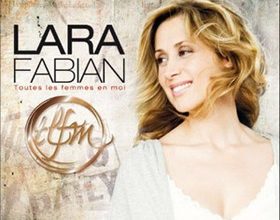1. Input your text below. 2. Get it corrected in a few minutes by our editors. 3. Improve your English!
Three reasons to sign up for our newsletter:
It’s useful and FREE
Just one email a week
Want to improve your English business writing?
YOUR NAMEYOUR EMAIL ADDRESS
A complete search of the internet has found these results:
most of people is the most popular phrase on the web.
most of people do is the most popular phrase on the web.
most of people are is the most popular phrase on the web.
what’s difference between «most of people» & «most people» ?
thx!
«Most people» means the majority of people. ie: «Most people like ice cream.» I can only think of one instance where you would use «most of people». ie: «Since we all have the ability to be unpleasant, you just have to make the most of people.» This is saying that you should look past the unpleasantness that is easy to see in people and look for the good which is sometimes not so easy to see. If you have seen «most of people» used in another way, please let me know.
Having read Yanni’s answer, I can see what you might have meant. If you put the article «the» in the phrase (most of the people) then the two phrases are similar.
«Most people» would include all people everywhere. «Most of the people» usually would refer to a specific group of people. The context of the writing would identify the group.
ie: «Most of the people on italki are interested in learning or teaching a language.»
The precedes most when we are using superlative forms of adjectives and adverbs: the most happily married man, the most intelligent woman, etc.
Here however, most = the greater number of + noun: most things are expensive, most people are kind, etc.
Another way used for specific nouns, as Torsten has indicated, is most of the + noun: most of the things here are expensive, most of the people in America are kind.
In any case, much will not work with countable nouns like things; it is used for uncountables: much labour is repetitive, much of the labour at our office is repetitive.
.
I THINK NO DIFFERENCE BETWEEN THIS WORD THE SAME
Most people think that driving after drinking alcohol is dangerous.
This means that the majority of people (in general) think this.
Most of the people in this room are over thirty years old.
This means the majority of the people in this room (not in general — just those people) are over thirty years old.
Still haven’t found your answers?
Write down your questions and let the native speakers help you!

Многие слова в английском языке используются в речи не только в рамках контекста, но и по строгим правилам грамматики. Например, “most” часто вызывает ассоциацию со степенью сравнения прилагательных (more — the most). Однако у этого слова есть множество других значений и форм, которые мы разберем в этой статье.
В случае, когда “most” является существительным, мы не используем артикли (a, the) и местоимения (this, that, my, his, etc.) в связке с ним.
Most people do not like winter — Большинство людей не любит зиму.
I have some unlucky days but most days are great — У меня бывают неудачные дни, но в большинстве случаев они замечательные.
Такая грамматическая конструкция английского языка предполагает, что мы говорим о людях и вещах в общем, не указывая определенной группы, категории и т.д.
Мы используем “most of” перед существующими или предполагаемыми артиклями и местоимениями в английском (the/this/that/my/her/his/etc.).
Most of the people in my family do not like winter — Большинство людей в моей семье не любят зиму.
I had some bad days last week but most of them were great — На прошлой неделе у меня было несколько плохих дней, но большинство из них были замечательными.
Главное отличие “most” от “most of” в том, что первое используется с обобщенными существительными (большинство как целое), а второе — с конкретными группами и категориями (большинство из определенного спектра).
Мы используем “the most” перед прилагательными или наречиями, чтобы выразить наивысшую степень сравнения.
These are the most beautiful flowers you can find — Это самые красивые цветы, которые вы можете найти.
Here you may taste the most delicious cupcakes — Здесь вы можете попробовать самые вкусные кексы.
Practice time! Переведите следующие предложения с русского на английский:
Большинство людей в это комнате были одеты в белое.
Большинство людей не любят носить белое.
Самый красивый цвет — белый.
The sense of history used here identifies a particular period. Now just what that period is may be unclear or may differ between similar uses (in particular, whether prehistory—the period before writing was invented and hence written records available—is included or not will differ between uses).
But despite this ambiguity, it still refers to one particular thing. While we do not capitalise it, it’s more a proper noun in this sense than it is a common noun, for just as Jon identifies one person (in a given use), history in this use identifies one period, albeit the period that covers everything.
Other uses of history are countable or mass uses:
To take StoneyB’s examples:
Most history is lies.
This uses history as a mass noun to cover all that is said about the past. Hence most is used to identify the greater part of that mass, that is to say the greater part all that is said about the past.
Most histories are boring.
This uses history as a countable noun, to refer to a particular account. (Or rather in the plural, to refer to particular accounts). Here most identifies a certain number of this plural amount.
During most of history, humans were too busy to think about thought.
This uses history as a proper noun, to refer to a particular period in time. We could interpret it either as since writing began, or since humans began (from context we clearly don’t care about earlier than that), but however we interpret it, it’s talking about one individual, particular period.
It uses most of to identify the larger part of that particular period.
In comparison, water:
Most waters are healthy.
Uses water as a countable noun, in the plural (as can be done to differentiate water from different sources), and applies most to that plural number.
Most water is healthy.
Uses water as a mass noun, and applies most to that mass.
Now, we don’t have a sense of water on its own that applies to one individual. We can though use «the water» to apply to a particular bit of water.
Most of the water is healthy.
Again, because we’re dealing with an individual case, we use most of rather than most
The difference is unspecific group vs. specific group.
Likewise, with proper nouns, we only use the if the is normally part of that proper noun; «Most of Europe» and «Most of the Rolling Stones» differ because we don’t say «the Europe» but we do say «the Rolling Stones».
Предложения с «most of the people who»
Thanks to TextRanch, I was able to score above 950 on TOEIC, and I got a good grade on ACTFL OPIC as well. + Read the full interview
— Alan, Student


I love TextRanch because of the reliable feedback. The editors’ comments are helpful and the customer service is amazing. + Read the full interview
— Zubair Alam Chowdhury, Technical Support Specialist


TextRanch has helped me to improve my written skills as well as to communicate more naturally, like a local English speaker. + Read the full interview
— Michel Vivas, Senior Technology Officer


TextRanch is amazingly responsive and really cares about the client. It’s the best online service that I have ever used! + Read the full interview
— Reza Bahrami, Photographer/Filmmaker


I started to use TextRanch when I began to learn English. It has been an awesome way to improve my English skills. + Read the full interview
— Chiara Baesso, Copywriter


I love that TextRanch editors are real people who revise the text and provide feedback – it makes it so personal. + Read the full interview
— Marelise, Social Media Manager


I sometimes wonder if my English expressions make sense clearly and TextRanch helps me a lot in such cases. + Read the full interview
— Snappy, Translator


TextRanch has been really helpful in improving the flow and repairing the structure of my sentences. + Read the full interview
— Rin, Translator


Why choose TextRanch?
Up to 50% lower than other online editing sites.
Our team of editors is working for you 24/7.
Native English experts for UK or US English.
Top Customer Service We are here to help. Satisfaction guaranteed!
Most of people is
4 results on the web
Some examples from the web:
3 reasons to join our newsletter:
Improve your written English
Weekly emails with useful tips

93,100,000 results on the web
Much people
205,000 results on the web
Most of people are
6 results on the web
Related Comparisons
212,000 results on the web
Предложения с «most of the people»
2,580,000 results on the web




